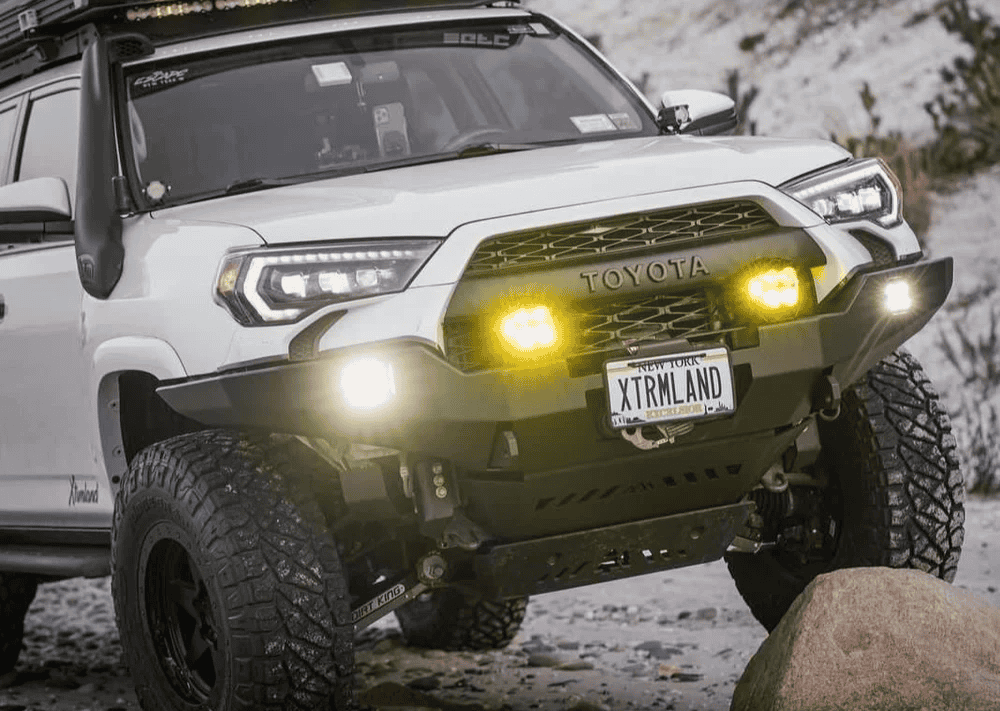Overland Vehicles

An expedition diesel truck is built to travel far from pavement while carrying everything needed to live, work, and recover in remote places. Buyers searching for an expedition truck for sale should start with a clear use case: desert tracks, alpine passes, or muddy forest service roads each ask different things of a vehicle. Diesel power shines for torque, engine braking, and superior fuel economy under load, which helps when you are hauling water, gear, and a camper system. Range matters, so pay attention to tank size and potential for auxiliary tanks. Build quality and serviceability are as important as raw capability, because the simplest fixable solution often wins when you are days from a shop.
For expedition diesel trucks, torque at low rpm and proper gearing keep momentum on steep climbs and technical trails. Look for factory or aftermarket locking differentials, selectable four wheel drive, and crawl friendly transfer case ratios. A larger factory tank or an integrated auxiliary tank provides range peace of mind, especially when mileage drops on sand or in headwinds. Cooling upgrades and transmission tuning can improve reliability on long grades. If you travel internationally, research fuel quality and parts availability for your chosen engine family.
Payload is the cornerstone of a safe overland pickup. Add up passengers, water, fuel, tools, spare parts, recovery gear, and the dry weight of any habitat or canopy. Compare that number to the door jamb sticker for gross vehicle weight rating. The right spring rate and shock valving prevent bottoming and reduce porpoising on washboards. Tire selection influences both load rating and ride: all terrain tires suit mixed travel, while mud terrain tires bite in clay but can drone on highway. Skid plates, bumpers, and winches add weight, so plan upgrades as a complete package.
Living systems turn a capable truck into a true expedition platform. Prioritize ventilation, insulation, and a lay flat sleep system that can be set up quickly in bad weather. Electrical systems should power a fridge, lights, and communications without idling the engine, with lithium batteries, solar input, and quality charge controllers. Water storage and filtration keep you self reliant. For recovery, a 12 volt winch sized for gross weight, rated recovery points, a full size spare, jack points, and traction boards are the fundamentals. A tidy gear layout saves time when the trail gets complicated.
Start with the platform: half ton, three quarter ton, and one ton trucks offer very different payload and axle ratings. A canopy or flatbed canopy maximizes storage and weather protection, while a slide in camper offers standing room and integrated amenities at the cost of weight and height. When scanning for sale expedition listings, study service records, axle ratios, and evidence of quality installs versus improvised work. Inspect for frame rust, wiring splices, and uneven tire wear. Drive the truck on highway and on a rough road if possible to feel suspension behavior and rattles that point to loose gear. Put a premium on a clean electrical system with proper fusing, labeled runs, and accessible components for field repairs.
Electrical planning separates weekend set ups from long range expedition builds. A realistic power budget will size batteries, alternator charging, and solar input. Consider shore charging for pre trip staging. Communications should match your routes: satellite messenger, ham or GMRS radio, and offline maps with redundancy. Lighting is more than a light bar; thought through fog lamps, rear work lights, and scene lighting reduce fatigue and improve safety at camp.
Beyond purchase price, total cost of ownership covers tires, shocks, brakes, fluids, and filters at accelerated intervals due to dust and weight. Diesel parts can be expensive, but long service intervals and fuel economy help balance the ledger for many travelers. Plan for a preventive maintenance schedule that matches your routes, and stash a spares kit with belts, filters, and consumables your engine needs. Warranty and dealer network coverage matter if you plan cross country travel. Finally, think about storage at home, security on the road, and insurance that covers modifications.
When it is time to turn research into a dependable truck, working with a focused builder can compress years of trial and error into a clean, field tested outcome. Explore our Overland rigs approach to see how complete systems thinking prevents overload and wiring nightmares. For tailored layouts, review our Custom overland upfit process that dials suspension, power, water, and storage around your crew and routes. Want to know what makes the experience smooth from the first call to handoff. See Why choose OZK Customs to understand our build philosophy and delivery experience.
If a listing checks your boxes and your inspection lines up, get a third party evaluation and confirm payload before adding gear. If you prefer a purpose built path, OZK Customs can source a suitable platform or upfit your truck into a reliable expedition rig without guesswork. Our team designs around real use, tests the details, and hands you a truck ready for long days and quiet nights far from pavement. Start the conversation and we will translate your needs into a clear, build ready plan.
More From OZK Customs:
Ready to turn your spec list into a dialed, trail tested build. Share your goals and timeline, and OZK Customs will map a clear path to a reliable expedition platform built for your routes.
ADDRESS:
6159 E Huntsville Rd, Fayetteville, AR 72701
PHONE:
(479) 326-9200
EMAIL:
info@ozkvans.com